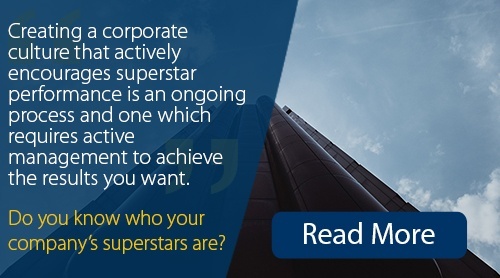
There have been about 2,000 studies carried out over the past 30 years in almost every industry to see whether the top sales people are born, i.e. they have an innate personality type that makes them ideal for sales, or made, i.e. they have excellent product knowledge, trained in active listening and have great processes supporting them.
A meta-analysis of these studies came to the conclusion that the reality is that it’s about 50/50 between a born salesperson and one who’s learned their trade.
There’s an element of variation according to industry. In really technical industries, such as petroleum engineering, it’s more like 40% born and 60% made, while in businesses that rely on relationships, such as the fashion industry, it’s more like 60% born and 40% made.
However, regardless of industry, roughly 20% of the people in your company will be bringing in 80% of the business.
If we look back at finding the right people for the right role and if you take any group of random people, 20% will be perfect for a particular job, 20% will be totally unsuitable and the remaining 60% will be moderately suited. This is why using a personality assessment is so useful, because it will give you a strong indication of where a candidate sits on that scale.
If someone falls in that top 20%, you know they’ll be one of your A players. If they’re somewhere in the middle area, they could still have the potential to be a strong B player. Maybe they’re very experienced or maybe they’ll be able to bring in new business from their own clients. If they’re in the bottom 20%, then it’s best not to waste either your time, or theirs, by hiring a C player.
In case there was any doubt as to the value of assessments, let’s look at an example. Assume that your company wants to sell £3 million in a year and you’re currently bringing in £2 million, so you decide to bring in two new salespeople. You go through the recruitment process and narrow it down to the final two who both look equally good on paper. However, if you had used an assessment tool, you would have discovered that one was naturally talented and well suited to the role and the other one really wasn’t suited at all.
Good to Great is a management book by Jim Collins. He and his team looked at around 1,500 companies trying to identify the traits that would take a company from good to great.
The most fundamental theme surrounded the people in your company. If you have the right people in the right jobs, it makes all the difference. Find out what your people really love to do and where their natural talents lie. By placing them in a role where they’re required to use their passions, you’ll have people who think of their job as fun rather than work. They’ll be happy, they’ll make the people around them happy, the boss will be happy, in short, everyone’s happy.
There are a number of ways in which you can make this scenario a reality. One is to use a specialist sales recruiting company to find those naturally gifted salespeople who love selling and are driven to improve their skills on an ongoing basis. But you don’t just want to rely on the experts, so another technique you should incorporate into your sales recruitment process is to use aptitude and personality assessments.
There are a wide range of tests available to help you uncover potential recruits’ underlying personalities. Tests such as Myers Briggs and DISC are great to tell you what kind of personality someone has, and any assessment process is better than none, but if you really want a mechanism which is backed up by correlation studies to be predictive of job success, for best practice, you should be using Predictive Index, Caliper or CPQ, which have carried out big correlation studies to help you make the best possible decision.
If you hire the naturally talented salesperson, they’ll sell £2 million, putting you well on course to hit your target. However, using the 80/20 rule, your other salesperson would only sell £500,000, which is a massive £1.5 million less. With the cost of an assessment tool coming in at around £100, it doesn’t take much to see why, in the US, 92% of the Fortune 200 companies use a tool like this before they hire anyone – and not just salespeople.
More from Vistage:
Our gift to you...
Apply now for your personal leadership consultation with a Vistage Chair. They'll help you assess areas of strength of your business and identify areas of potential growth.


